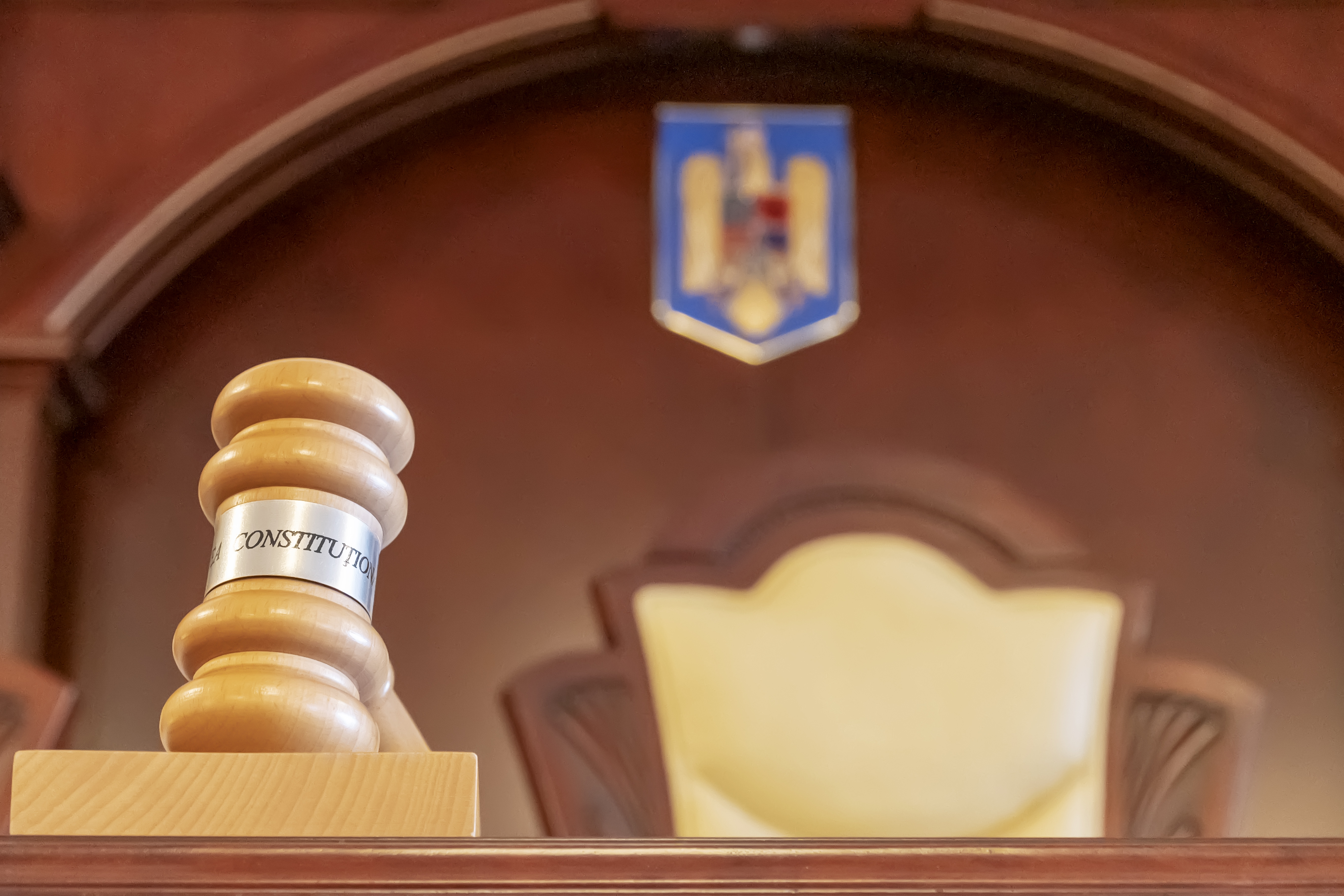On Tuesday 23 May 2023, the President of the Constitutional Court of Romania, Mr Marian ENACHE, attended the conference “Romania towards the future. A century of history, from the 1923 Constitution to the present day”.
The event was organised by the Italian Embassy in Bucharest under the patronage of the Romanian Constitutional Court and the aegis of the Romanian Academy, in partnership with the Research Centre of the Rome Tre University.
The Constitutional Court of Romania was represented at the event also by Mrs Elena-Simina TĂNĂSESCU, Mrs Laura-Iuliana SCÂNTEI and Mr Dimitrie-Bogdan LICU, Judges, Mr Cristina TITIRIȘCĂ, Assistant Magistrate, and Mrs Mădălina Verman, counsellor within the External Relations, Press Relations and Protocol Department.
The President of the Constitutional Court of Romania gave a statement highlighting that the session was an inspired event and a demonstration of the cooperation and friendship between the two countries, Romania and Italy, between the Romanian Constitutional Court and the Italian Constitutional Court, which would be developed and strengthened.
“For today’s generations, knowing how the 1923 Basic Act fulfilled its purpose, as the supreme law of the State, enshrines the unity of Romanians, is a crucial historic moment with structural implications and effects for the current development of the Romanian State,” said Marian ENACHE.
The President of the Court stated that a constitution deemed successful by its initiators can fail if it does not find its echo in civic consciousness and if it does not inspire in citizens the confidence that it guarantees their rights, freedoms and legitimate interests.
“We believe that Romanians express their complex identity continuously and through the identity of the principles and values enshrined in the Basic Law, and that, crucially, we can talk about an ideal possession of the spirit of the Constitution in their own conscience. The essence of the Constitution lies in the permanent link between the people, the holder of power, and their representatives, the reference social pact on the basis of which laws can legitimately be adopted and social peace can be achieved. The Constitution must correspond to the social state, so the law can only express the general will in accordance with the Constitution, an expression of the majority of the citizens’ will affirmed in the referendum. It is the role of the Constitutional Court, the guarantor for the supremacy of the Constitution, to ensure the state of constitutionality in our legal system. The realisation of constitutional justice is carried out through the constitutionalisation of the legal system and of the political and democratic process, which establishes and defends the constitutional order”, he added.
According to the President of the Court, in the absence of a constitutional review of laws, the Constitution is merely a normative act, even if the principle of the sovereignty of the people and the constituent power were recognised.
“Within this reference framework, we reaffirm the importance of the principle of stability of the Constitution, which ensures the strength of the political and social order and which must temper the temptation of a permanent change of the Constitution. (…) Any constitution is reviewable, obviously within the limits pre-established by the Basic Law, and this process is determined and must reflect new developments, cultural trends and political and economic changes in society, changes in the sphere of social realities”, said the President of the Court.
The letter of the Constitution is legal, the spirit of the Constitution is democratic, underlined the President of the Court.
“If we do not interpret the legal letter of the Constitution in a democratic spirit, we can affect the essence and profound meaning of the values of the Constitution. Any decision of the Constitutional Court is both a legal act and an expression of a democratic act. In the application of the Basic Law, in order to ensure the supremacy of the Constitution over the law, the Constitutional Court refers in its decisions to the standards of case law of the European Court of Human Rights (ECHR) and the Court of Justice of the European Union (CJEU), as well as the Venice Commission”, said Marian ENACHE.
The President of the Court concluded: “It is undeniable that the experience and knowledge of our predecessors in constitutional matters constitute a genuine basis for a deeper understanding of the present and of the future of Romania, the need to develop new mentalitarian structures in society, and to promote a new, inclusive vision, permanently connected to the dynamics of the European Union’s demands, such as the common area of freedom, justice and democracy”.
The conference took place in the Aula of the Romanian Academy. The Italian Ambassador Alfredo M. Durante Mangoni, the President of the Romanian Academy Ioan-Aurel Pop, and the President of the Constitutional Court of the Italian Republic, Silvana Sciarra (online), also made opening remarks.






